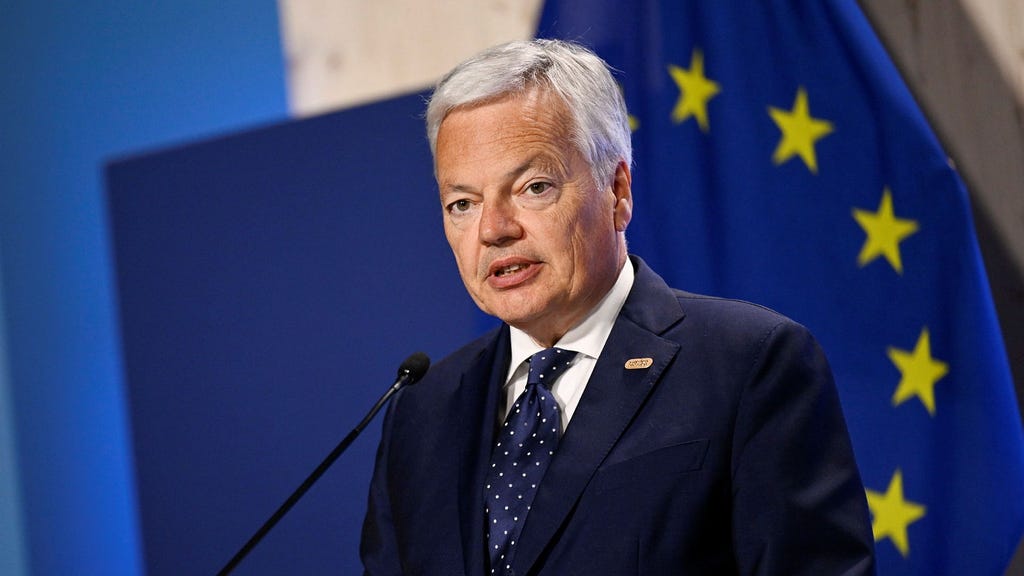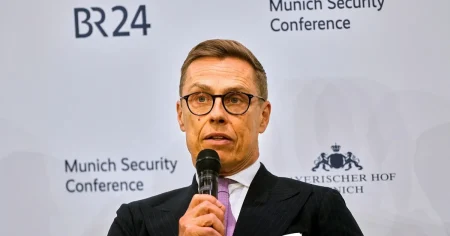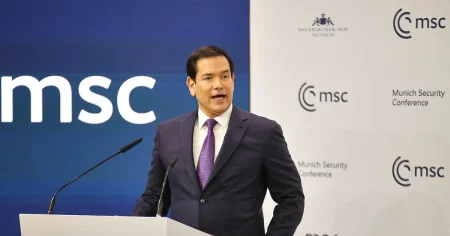The unfolding investigation into Didier Reynders: Allegations of money laundering and political implications
On Tuesday morning, Belgian police executed searches at the residences of prominent liberal politician Didier Reynders. This action, coming just days after the installation of a new European Commission, signals a significant escalation in a months-long investigation into Reynders’ financial activities. While official confirmation of the investigation’s target remains pending, investigative reports from Follow the Money and Le Soir, citing sources close to the probe, point squarely at the former Belgian minister and European Commissioner. These reports allege that Reynders engaged in a decade-long money laundering scheme, utilizing the national lottery system to obscure the origin of substantial sums of money.
The alleged scheme, as detailed in the reports, involved Reynders purchasing lottery tickets in cash, in denominations ranging from 1 to 100 euros. These readily available tickets were then reportedly transferred to Reynders’ digital lottery account. Winnings from these tickets were subsequently deposited into the same digital account and then transferred to his private bank account. This process, repeated over an extended period, is suspected of masking the true source of the funds. Crucially, the origin of the money used to purchase the lottery tickets remains unknown, a critical piece of the puzzle that investigators are likely striving to uncover. The national lottery, following standard procedures, flagged suspicious transactions potentially linked to money laundering or terrorism financing to the Belgian financial crimes authority, triggering the investigation.
Reynders’ distinguished career in both Belgian and European politics casts a long shadow over the unfolding events. His two decades of service as a federal minister in Belgium, including portfolios such as finance and foreign affairs, and his subsequent tenure as Belgium’s European Commissioner for Justice, position him as a central figure in the political landscape. Ironically, his Commissioner role from 2019 to 2024 included responsibility for combating corruption across the EU, a fact that adds a layer of complexity and potential embarrassment to the current allegations. His unsuccessful bid for the presidency of the Council of Europe following his Commission term further underscores his prominent position and the potential repercussions of this investigation.
The timing of the police raids, mere days after the new EU Commission took office, is not coincidental. While the investigation has reportedly been underway for several months, authorities strategically waited until Reynders concluded his term as European Commissioner to avoid potential legal complications. European Commissioners enjoy immunity from prosecution during their tenure. Lifting this immunity requires a formal decision by all 27 commissioners, a process that would have inevitably alerted Reynders to the impending raid. While no longer protected by EU immunity, Reynders retains some legal safeguards stemming from his previous ministerial position in Belgium. Before he can be arrested or prosecuted, the Belgian parliament must vote to lift his parliamentary immunity, adding another layer to the legal and political maneuvering surrounding the case.
The accusations against Reynders, if proven, could have far-reaching consequences. The alleged use of the national lottery system for money laundering raises concerns about potential vulnerabilities within the system itself. The investigation will likely scrutinize the lottery’s internal controls and reporting mechanisms to determine if improvements are needed to prevent similar exploitation in the future. Moreover, the case highlights the challenges of combating financial crimes involving politically connected individuals. The complexities of navigating parliamentary immunity and the potential for political influence can create hurdles for investigators and underscore the importance of robust legal frameworks and independent judicial processes.
The ongoing investigation represents a critical juncture in Reynders’ career and potentially for the Belgian and European political landscape. The outcome will determine not only Reynders’ fate but also shed light on the effectiveness of anti-corruption mechanisms within both national and supranational institutions. As the investigation progresses, the focus will remain on uncovering the source of the funds allegedly laundered through the lottery system and determining the extent of Reynders’ involvement. The resulting legal and political fallout could have significant implications for the fight against corruption and the integrity of political institutions.














